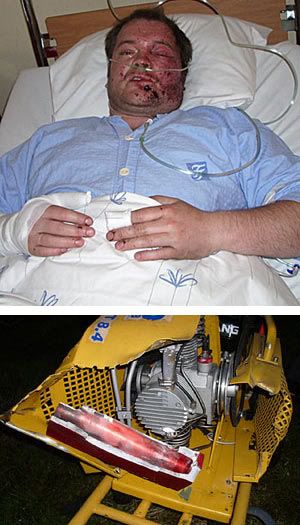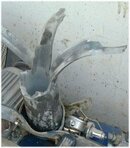I've been trying to research how to refurbish a used bauer verticus compressor by reading the manual and forum entries here, but haven't encountered a lot of specific information about possible failures that can occur and how to prevent them. Specifically, I am most nervous about swagelok tubes possibly flying apart violently at 3600 psi and/or the effect of minor external rust spots on the tube. Also, I don't have much information about the history of the unit and wonder about the integrity of the moisture separators. I have heard that they can fail even more violently than a swagelok tube rupture.
This unit was built in the early nineties and is weathered for sure. What sort of things should I check / test before bringing the unit up to full pressure for the first time? How worried should I be about a final stage water separator failure? The compressor unit is in its own sheet metal enclosure, which is itself in a heavy gauge steel storage shed. Is this enough protection?
Is Bauer's sheet metal enclosure enough to absorb flying debris in case of failure or do I need to do something extreme like surround it with sand bags just to be safe? I'm not really sure how to gage the risk, especially since I've never worked with high pressures like this before.
This unit was built in the early nineties and is weathered for sure. What sort of things should I check / test before bringing the unit up to full pressure for the first time? How worried should I be about a final stage water separator failure? The compressor unit is in its own sheet metal enclosure, which is itself in a heavy gauge steel storage shed. Is this enough protection?
Is Bauer's sheet metal enclosure enough to absorb flying debris in case of failure or do I need to do something extreme like surround it with sand bags just to be safe? I'm not really sure how to gage the risk, especially since I've never worked with high pressures like this before.






